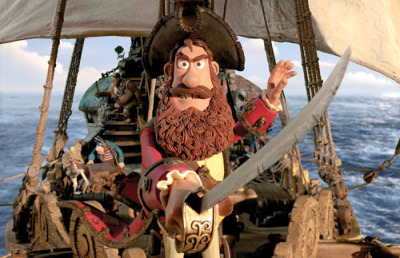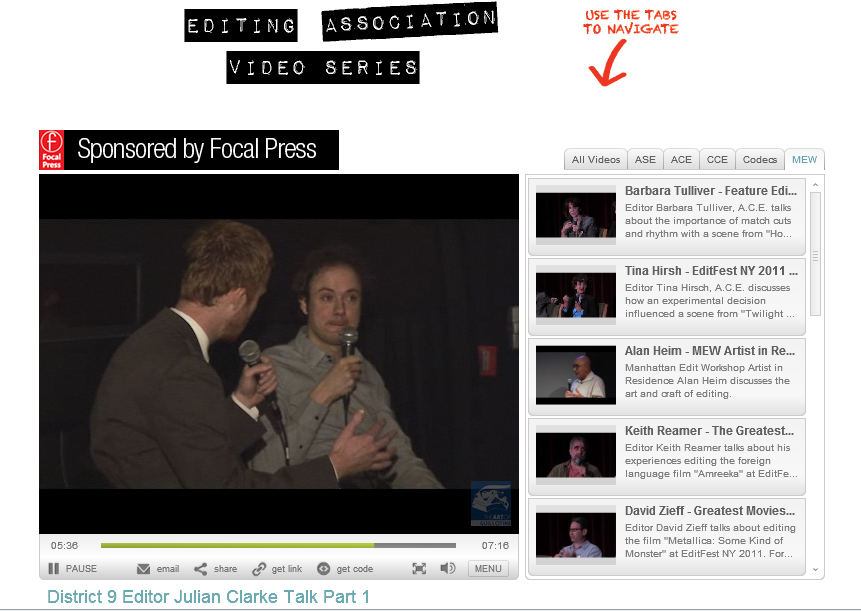
It's a defining characteristic of stop motion animation that it takes a long time to make.
I've been on Pirates! for over a year now, in previs and VFX. They've been shooting for slightly longer than that, and are due to wrap in November. The processes generally associated with 'post' have been going on for even longer than that with animatics, dialogue records, and test work-ups to get the look right.
So you'd think that with an 18 month shoot, up to 12 times the length of a 'traditional' feature shoot, that keeping track of everything in post would be easy, right?
Wrong.
Firstly, every single shot in the film has some form of VFX work. So that's over 1000. There are often foreground plates and background plates - some of which require re-syncing in edit.
There are rig-removals, greenscreen work, and entire environments to create in situations where it is impossible or impractical to animate on the floor. The big one in a pirate movie is obviously the water. There are several options to be chosen from creatively - some form of physical element which is animated along with the character/ ship/ sail/ other movements, which may not look realistic but allows for interaction on set; seperate plates for water which may not allow for interaction with the elements, although the interactive parts could be added in VFX with the bulk of the water; or total VFX creation which is potentially infinitely (until the film needs to be released!) tweakable.
Another major consideration is the shooting schedule. A lot of features are shot within a few weeks or months, especially those which are 90 minutes or less. Our 18 month shoot needs every day of shooting, and an incredible amount of coordination by our amazing production manager. We have different sets set up on over 40 units at the last count, several sets span multiple scenes from various stages of the film.... but also the relevant puppets need to be allocated to each set. There are more of certain major characters (also allowing for costume changes where relevant), but there's still not a lot of wriggle room. The impact of this is that sometimes shots get unexpectedly bumped up the schedule, some plates can get shot months later than the plates they go with, and sometimes script or edit changes happen which require re-shoots and the un-approval of previously approved takes.
The major plus side on Pirates! for the points above is that VFX is based in the same building that the movie is actually being shot in, and we can pop along to see people and live sets when necessary - or communicate changes and changed urgencies via the walkie channels. We can request clean plates (without the models), tracking passes (with markers at specific places), chrome ball photos (for lighting ref), and clarify technical requests or potential difficulties which may require a reshoot - all within about 30 minutes of the shot being finished - before they strike the set.
It's an amazing experience to be a part of, and being effectively "on set" is something which a lot of editing and/or VFX people may not often get the chance to be a part of. Aardman has now run its friends and family tours of some of the sets - which was a great experience for my parents who have supported me throughout film school and subsequent employment gaps.
It's also a great chance to work with some brilliant people. Our previz and VFX crews have worked on some fantastic projects in the past, and the editing team vary in experience from those who've worked on previous Aardman productions to those with a primarily dramatic experience base. Our workflow is constantly in flux as we encounter new requirements and difficulties, and the documentation and communication also changes over time as we find better ways to do things.
In this way, it's a totally ideal first feature for me to be working on. We have the time to make things better, and for me to suggest things as I see them. We have constant communication with the floor and the lovely directors who are on-site and split their time between pre-production (now largely over), production, and post - which allows for an appreciation of the challenges that they all face (again, often something not encountered in a post-production environment except by way of anecdote). AND I think we're going to get a rather good film out of it.
For more information on Pirates!, please see the official press release.


